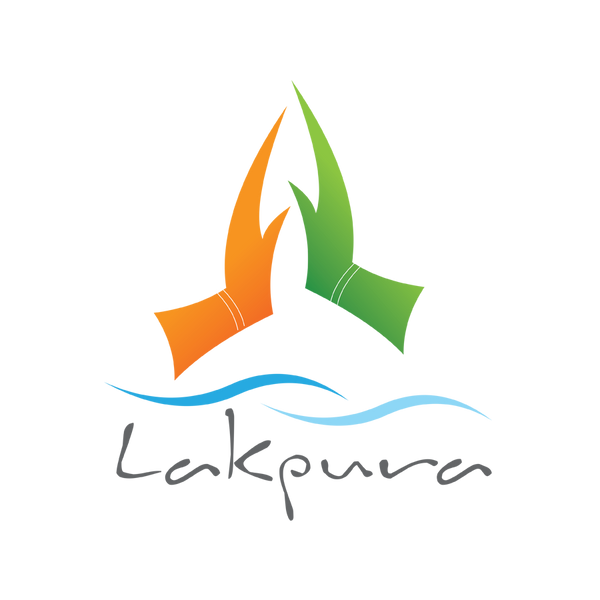
Sri Lanka
Sri Lanka, an island nation in South Asia, is renowned for its rich cultural heritage, diverse landscapes, and wildlife. Attractions include ancient temples, pristine beaches, lush tea plantations, and vibrant festivals. The country's unique blend of cultures, warm hospitality, and delicious cuisine make it a captivating destination for travelers.
Portuguese-Sri Lankan Surnames and their meanings
The Portuguese arrived in Ceylon, or Ceilão, as they called it, by chance. In 1505, a fleet commanded by Lourenço de Almeida—the son of Francisco de Almeida, the first viceroy of Portuguese India—was blown into Galle by adverse winds. It was thirteen years later, in 1518, that the Portuguese established formal contact with the Kingdom of Kotte, ruled by Vira Parakrama Bahu, and were permitted to build a fort in Colombo.
Although the Portuguese were primarily interested in exploring trade and commercial opportunities in Sri Lanka, an opening for greater exploitation presented itself in the form of seven warring kingdoms within the island. With time, the kingdom of Kotte began to depend heavily on the Portuguese for defense against the other kingdoms, leading to an enhanced role for the Portuguese in Sri Lankan affairs.
An agreement in 1543 between King Buvenaka Bahu of the kingdom of Kotte and the Portuguese resulted in his grandson Prince Dharmapala being educated in the Franciscan order of the Roman Catholic Church. The conversion of Dharmapala heralded sweeping changes in Sri Lanka’s social landscape, as the Portuguese embarked on a mission to convert the local populace.
Sri Lankans in the western coastal areas were particularly susceptible to the changes, with conversions occurring en masse, but conversions occurred interior and in the northernmost parts of the island as well. As Portuguese culture permeated the island, Sri Lankan Tamils and Sinhalese took on many Portuguese names as their own, suffixed to their personal names.
Here are a list of some of the more popular Portuguese-Sri Lankan surnames and what they mean:
- Silva / de Silva
The surname ‘Silva’, and its derivative ‘de Silva’, meaning ‘from Silva’ or ‘of Silva’ is a popular Portuguese surname and means ‘forest’ or ‘woodland’. It is a wide-spread surname in Portuguese-speaking countries as well as regions formerly under the control of the Portuguese empire (like Sri Lanka, India, America, and Africa.) ‘Silva’ and ‘de Silva’ are very common surnames in Sri Lanka, but doesn’t necessarily mean the holder is of Portuguese descent—just that the holders ancestors subscribed to the cultural hegemony perpetuated by the Portuguese.
- Fernando
The surname ‘Fernando’, although perpetuated in Sri Lanka by the Portuguese, is the old Spanish form of a Germanic name meaning ‘adventurous’ or ‘bold journey’. It is made up of the elements ‘fardi’, meaning ‘journey’, and ‘nand’ meaning ‘daring and brave’. In addition to being a popular name in Portugal, the name is common in Western India which was colonised by the Portuguese, and of course in Sri Lanka, where it is one of three most popular (the others being ‘de Silva’ and ‘Perera’) surnames taken on by Sinhalese.
- Perera / Pereira
The surname ‘Perera’, and its variant ‘Pereira’ is derived from the Portuguese surname ‘Pereira’, meaning ‘pear tree’. Perera is a very common surname in Sri Lanka, taken on by Sinhalese converts to Roman Catholicism with the advancement of Portuguese rule in Sri Lanka. ‘Perera’ is also a Spanish name with a number of variants (Perer, Perero, Pereros, Pereyra, Pereyras, Das Pereiras, Paraira) in the Iberian peninsula.
- Almeida / de Almeida
‘Almeida’ and its variant ‘de Almeida’, meaning ‘of’ or ‘from’ Almeida is a Portuguese surname derived from the town of Almeida (in the Beira Alta province) in Portugal. Portuguese explorer Lourenço de Almeida who ‘discovered’ Sri Lanka, was the first of his kind to arrive in the island. In the subsequent decades, with the expansion of Portuguese powers in Sri Lanka, the surname ‘Almeida’ took on prominence with many Sinhalese and Tamil families taking on the name.
- Costa / de Costa
‘Costa’ and its variant ‘de Costa’ meaning ‘from’ or ‘of’ Costa is a Portuguese surname derived from the Latin word ‘Costa’ which means ‘rib’. With time, the surname came to mean ‘side’, ‘slope’, or ‘coast’ denoting the holder was from the coastal area. The surname ‘Costa’ and ‘de Costa’ are also Italian and Spanish surnames. In Sri Lanka, the surname was adopted by many Sinhalese and Tamil families, with the adoption of Portuguese mores in Sri Lanka.
- Fonseka
The surname ‘Fonseka’ is derived from the Portuguese surname ‘Fonseca’, which comes from the Latin ‘fōns siccus’, meaning ‘dry well’. It refers to a spring that has dried up during the hot summer months and is today a well-known Sinhalese surname in Sri Lanka.
- Correa / Corea
The surname ‘Correa’ or ‘Corea’ is a derivative of the Portuguese word ‘correia’ meaning ‘leather strap’. The surname is of occupational origin, meaning the holder was originally a maker or seller of leather straps (or belts). The surname is popular in Portugal and in Spain and is adopted by Sri Lankan Tamil and Sinhalese families for further advancement under Portuguese rule.
- Tissera
The surname ‘Tissera’ is derived from the Portuguese surname ‘Teixeira’ which refers to a ‘texio’ or ‘yew tree’. Variants ‘Texeira’ and ‘Técher’ are also common in Portugal. Although less common than the ‘Perera’, ‘de Silva’, and ‘Fernando’, ‘Tissera’ is today a well-known surname in Sri Lanka.
- Cabral / Cabraal
The surname ‘Cabral’ and its variant ‘Cabraal’ are Portuguese and Galician surnames that are derived from the Latin word ‘capra’ meaning ‘goat’ or ‘capralis’ which means ‘place of goats’. The surname is an occupational one, meaning the holder was engaged in work relating to the care of goats, possibly a goatherd. In Sri Lanka, the surname is has been adopted mainly by Sinhalese families.
- Thabrew / de Abrew
The surname ‘Thabrew’ and its variant ‘de Abrew’ meaning ‘from Abrew’ or ‘of Abrew’ is a derivative of the Portuguese name ‘Abreu’. The origins of the name is debated; some argue that it is a reference to the phrase ‘Abraham the Hebrew’, while others claims it refers to a ancient branch of the House of Normandy.
There are countless other Sri Lankan names of Portuguese origin, like Peiris, Nonis, Gomes, Suwaris, Mendis, Sigera, Pigera, and others. In addition to these surnames, Sri Lanka assimilated many of the Portuguese names for everyday items such as ‘kalisama’ (trousers), ‘kamisaya’ (shirt), ‘almariya’ (wardrobe), ‘bonikka’ (doll), ‘bottama’ (button) and so many more. In parts of the island, especially the north, a Portuguese creole is spoken by a small population of those of Portuguese descent. It is clear that the 153 years the Portuguese spent in Sri Lanka affected the cultural composition of the country, even to this date.
ලංකාවේ ගොඩ දෙනෙක් පාවිච්චි කරන ජනප්රිය වාසගම්
- පෙරේරා
මෙය ලංකාවේ වඩාත්ම භාවිත පෘතුගීසි පෙළපත් නාමවලින් එකකි. පෘතුගීසි යෙදුම:- Pereira (පෙරෙයිරා). අර්ථය:- ‘පෙයාර්ස් ගස’
- සිල්වා
සිල්වා’ යනු පෘතුගීසි නොව ලතින් වචනයකි (ලතින් බස සියලු යුරෝපා භාෂාවල මාතාව බව අපි දනිමු). ලතින් යෙදුම: Silva (සිල්වා). අර්ථය: ලන්ද, ලඳු කැලෑව, Silva යන්න විටෙක De Silva ලෙසද භාවිත වේ ‘De’ යන්න ඉංග්රීසි බසින් ගත්කල ‘Of’ යන අරුත දෙයි. ඒ අනුව ‘De Silva’ යනු ලන්දේ/ ‘ලඳු කැලෑවේ’ යනුවෙයි.
- ද මෙල්
පෘතුගීසි යෙදුම – De Mello (දෙ මෙල්ලෝ). අර්ථය – ‘මී පැණි’. ඒ අනුව De Mello හෙවත් De Mel යනු ‘මීපැණිහි’/‘මීපැණියේ’ යනුයි.
- කෲස්
පෘතුගීසි යෙදුම: Cruz (කෲස්). අර්ථය – ‘කුරුසිය’. 100% ක්ම පාහේ ක්රිස්තියානින් වන පෘතුගාලයේ මෙබඳු ආගමික සංකල්පයක් පෙළපත් නාමයක් සේ යොදා ගැනීම පුදුමයට කරුණක් නොවේ.
- පීරිස්
පෘතුගීසි යෙදුම – Pires (පීරෙස්) – අර්ථය – පීරිසිය. මේ අනුව ‘පීරිසිය’ යනු වචනය මෙන්ම ‘කෝප්පය’ යන වචනයද පෘතුගීසි ආභාසයෙන් සිංහලයට නැඟිණැයි කල්පනා කළ හැකිය. පෘතුගීසි බසින් කෝප්පය Copo (කෝපෝ) යනුය.
- පාරිස්
පෘතුගීසි යෙදුම: Paris (පරීස්). අප කළ විමර්ශනයට අනුව පෘතුගීසි බසින් පරීස් යනු ප්රංශයේ අගනුවර වන පැරීසියයි. පැරීසියේ කලක් තිස්සේ සාම්ප්රදායිකව පෘතුගීසි සම්භවයක් සහිත ජන කොටසක් ජීවත් වෙති. මේ ජනතාව පෘතුගීසින් විසින් හඳුන්වනු ලැබුවේ ‘පරීස්’ යනුවෙනි. මේ සිංහල භාවිතයේදී මේ වාසගම ලැබූ අය ‘පාරිස්’ ලෙස හඳුන්වනු ලබති.
- ඩයස්
පෘතුගීසි යෙදුම – Dias (දියාස්) – අර්ථය : දිනයන්. පෘතුගීසි බසින් Dia (දියා) යනු ‘දිනය’ යි dias (දියාස්) යනු එහි බහුවචනමය ස්වරූපයයි. මාගේ පෙර කී මිතුරා පෙන්වා දුන් ආකාරයට ‘දිනය උදා කරන’ (දිනකර) යන අර්ථයෙන් මෙම Dias යන්න ‘සූර්යයා’ ලෙසද අර්ථකථනය කළ හැකිය.
- මෙන්ඩිස්
පෘතුගීසි යෙදුම – Mandaz (මන්දෙස්) Menendez (මෙනෙන්දෙස්). අර්ථය – ‘මෙනෙන්දෝ ගේ පුත්රයා’. මෙනෙන්දෝ යනු යුරෝපයට බලපෑ කතෝලික ශුද්ධවන්තයෙකු සේම රාජ කුමාරයෙකි. ඉංග්රීසි බසින් St.Hermangild (සා.හර්මන්පිල්ඩ්) ලෙස හඳුන්වන්නේත් මෙතුමාය. ක්රි.ව 6 වැනි සියවසේ ජීවත් වූ ස්පාඤ්ඤ රජකුමරෙකු වූ මෙතුමා කතෝලික විශ්වාසය උදෙසා දිවි පිදූ ප්රාණ පරිත්යාගියෙකි. මේ පෙළපත් නාමයේ අර්ථය එම ‘මෙනෙන්දෝගේ පුත්රයා’ යනුය.
- ප්රනාන්දු
යුරෝපයේ රටවල් රැසක පෙළපත් නාම හෝ පුද්ගල නාමයක් ද ලෙස ප්රනාන්දු යන්න ප්රකටය. පෘතුගීසි යෙදුම – Fernando (ෆර්නාන්දෝ). ජර්මානු රජ පෙළපතක් වන ෆර්ඩිනන්ඩ් (Ferdinand) යන්නෙහි පෘතුගීසි නාමය ලෙස ‘Fernando’ හැඳින්විය හැකිය. මෙම නාමයම Ferdinand ලෙස ජර්මන්, චෙක්, ලන්දේසි, ඉංග්රීසි, ප්රංශ මෙන්ම පෝලන්ත යන භාෂාවලින්ද Hernando (හෙර්නන්දෝ) ලෙස ස්පාඤ්ඤ භාෂාවෙන්ද නන්දෝර් ලෙස හංගේරියානු භාෂාවෙන්ද භාවිතවේ. ප්රනාන්දු යනු එහිම ලාංකේය ප්රකාශනයයි. තවද තම ප්රනාන්දු යන පෙළපත් නාමය ‘ප්රනන්ද’ හෝ ‘පුරනන්ද’ යනුවෙන් වඩාත් දේශීයත්වයට නඟාගත් ස්වල්ප දෙනෙකු සේම තම නාමයේ මුල් පෙළපත් නාමය නමේ අගට ගෙන ප්රනාන්දු යන්න භාවිත නොකරන වර්ණකුලසූරිය, කුරුකුලසූරිය, මිහිඳුකුල සූරිය, වර්ණකුල, මිහිඳුකුල, කොඩිප්පිලි හෝ වීරක්කොඩි හෝ වැනි නම් දරන ප්රනාන්දුවරු ද සිටිති
- නෝනිස්
ස්පාඤ්ඤ නාමය : ‘නූනෝ’/ පෘතුගීසි නාමය ‘නූනෙස්’. අර්ථය : ‘නුනෝගේ පුත්රයා’ මීට අමතරව මෙය පෘතුගීසි අරුතින් ‘නවවෙනි’ හෝ ‘සීයා’ යනුද වෙයි නූනෝ යනු 14 වැනි සියවසේ සිදු වූ කස්තීලියානු ආක්රමණයට එරෙහිව සටන් වැදී පෘතුගාලය බේරාගත් වීරෝදාර රණවිරුවෙකි ‘නූනෙස්’ ඔහුගේ පුත්රයා ලෙස අර්ථකථනය කෙරෙන අතර සිංහලයේදී එය ‘නෝනිස්’ නම් වෙයි.
- ගෝමස්/ගෝමිස්
මෙම පෙළපත් නාම දෙකම එකම ස්පාඤ්ඤ මූලාශ්රයකින් සම්භව වී යැයි සැලකිය හැකිය. ස්පාඤ්ඤ යෙදුම: විසිගොතික් සංකල්පයක් වූ ‘ගෝමා’ මෙහි මූල්ය ජර්මානු ‘ගුමා’ (Guma) යන්න අර්ථය:- ‘මිනිසා’. ඒ අනුව ‘ගෝමෙස්’ යනු ‘මිනිස් පුත්රයා’ (මනුෂ්ය පුත්රයා) ලෙස ගත හැකිය.
- ෆොන්සේකා
ලතින් මූලය : Fon+Sicca. අර්ථය : Fon (උල්පත) Sicca (වියළි බිම) වියළි බිමෙහි උල්පත තවද මෙය කාන්තාරයක ක්ෂේම භූමියකට ඉඟි කරයි.
- කොස්තා
පෘතුගීසි යෙදුම: Costa (කොස්තා). පෘතුගීසි අර්ථය : ගං ඉවුර, බෑවුම, මුහුදු වෙරළ. ලතින් අර්ථය: පැත්ත, අයින, කෙළවර, අද්දර
- වාස්
හංගේරියානු මූලය : Vass. අර්ථය – යකඩ. මෙමගින් කම්මල් රැකියාවේ නියුක්ත වූවන්, යපස් පතල්කරුවන් හෝ යකඩ භාණ්ඩ වෙළඳාමේ යෙදෙන්නන් අදහස් කෙරේ. එසේම මෙම පෙළපත් නාමය මගින් අති විශිෂ්ට චරිතයක්. ප්රබල විඳ දරා ගැනීමේ හැකියාවක්ද ප්රකාශ කෙරේ.
- අල්විස්
ජර්මානු මූලය : Alfher (පුද්ගල නාමයකි). පෘතුගීසි නාමය: Alves ( අල්වෙස්). අර්ථය – අල්ෆර්ගේ පුත්රයා (Alves) ලංකාවේදී මෙය Alwis (අල්විස්) බවට පත් වී ඇත.
- රුද්රිගු
ස්පාඤ්ඤ මූලය – රොද්රිගෝ දියාස් දෙ වීවාර් (පුද්ගල නාමයකි) එකොළොස් වෙනි සියවසේ විශිෂ්ට හා කැපී පෙනුණු ස්පාඤ්ඤ සේනාධිපතියෙකු වූ මොහුගේ නාමයට ගෞරව පිණිස රොද්රිගු යන මොහුගේ නාමය පෙළපත් නාමයක් සේ පසුකාලීනව භාවිතයට ගැනුණු බව පෙනී යයි. පුරාණ ජර්මානු බසෙහි Hroderic ලෙස හඳුන්වනු ලැබූ මේ නාමය ස්පාඤ්ඤ, පෘතුගීසි හා ඉතාලි භාෂාවලින් Roderico (රොදෙරිතෝ) ලෙසද කතෝලාන බසෙහි Roderic (රොඩෙරික්) ලෙසද ඉංග්රීසියෙහි Rod හා Roddy ලෙසද ප්රංශ බසෙහි රොද්රිගු (Rodrigue) ලෙසද පෘතුගීසි හා ස්පාඤ්ඤ භාෂාවලින් තවත් විටෙක Ruy,Rui හෝ Ruiz ලෙසද මේ නම භාවිත කෙරේ. සාමාන්ය සිංහල භාවිතයේදී රුද්රිගු නම් වන මේ පෙළපත් නාමය ඉංග්රීසිකරණ ලක්ව Rodrigo (රොඩ්රිගෝ) ලෙස වර්තමාන ‘පොෂ්’ ඉංග්රීසියෙහි (Posh English) භාවිත වේ.
- සුවාරිස්
ජර්මානු මූලය :- Suero (සුඑ්රෝ). Su+heri ලෙස මේ වචනය කොටස් දෙකකට බෙදා දැක්විය හැකි නමුත් පෘතුගීසි විශේෂඥයන් පවා තවමත් ‘su’ යන්නෙහි අර්ථය කුමක්දැයි නිශ්චිත කරගෙන නැත. එහෙත් ‘heri’ හෙවත් ‘hari’ යනු ‘හමුදාව’ යි.
- සොයිසා
පෘතුගීසි මූල්ය : Souza (සූසා). මුල් කාලයේ මේ නාමය යොදා ගැනුණේ පෘතුගාලයේ සූසා ගංගා නිම්නයේ පදිංචි වැසියන් හඳුන්වනු පිණිසය. මේ ගංගාවට Souza යන නම ලැබීමට ලතින් වචන දෙකක බලපෑමක් ඇතැයි සැලකේ. එනම් Salsus (ලවණමය) හෝ Saxa (ගල් සහිත) යන වචන දෙකම හෝ ඉන් එකක් හෝ ඊට බලපාන්නට ඇතැයි පිළිගැනේ. සොයිසා යැයි කී විට ලංකාවේ කාටත් සිහිවන නගරය මොරටුවයි.
- අල්මේදා
අරාබි මූලය – ‘අල් මයිදා’ (Al Maida). අර්ථය – කලක් ඉස්ලාමීය ආක්රමණයට යට වී සිටි ස්පාඤ්ඤයේ එක් නගරයක් අරාබින් විසින් හඳුන්වනු ලැබූයේ ‘අල් මයිදා’ යනුවෙනි. එහි අර්ථය ‘සානුව’ යනුය. ‘අල්මේයිදා’ ලෙස ස්පාඤ්ඤකරණයට ලක් වූ මේ පෙළපත් නාමයෙන් එම නගරයේ වැසියන් හඳුන්වනු ලැබීය. මෙම පෙළපත් නාමය ලංකාවේදී භාවිත වන්නේ ‘අල්මේදා’ වශයෙනි. ලංකාවට ගොඩබට ප්රථම පෘතුගීසි කප්පිත්තා වූයේ ලොරෙන්සෝද අල්මේදාය.
- කබ්රාල්
ලතින් මූලය: Capralis (කප්රාලිස්). අර්ථය: එළුවන් ලගින තැන – මේ පෙළපත් නාමය එළුවන් බලාගන්නා පුද්ගලයෙකු හැඳින්වීමට යොදා ගත්තා විය හැකිය. ලංකාවේදී මෙය ‘කබ්රාල්’ ලෙස භාවිතවේ.
- කොරයා Cora (කෝරා)
ලතින් මූලය – Cora (කොරෙයා) අර්ථය – හදවත. ලතින් බසින් කොරියානු රාජ්යය හැඳින්වීමට යෙදෙන මේ යෙදුම හැරෙන්නට මෙම පෙළපත් නාමය සාධාරණීකරණය සඳහා සොයාගැනීමට අපට සොයාගත හැකි එකම සාධාරණ වචනය වන්නේ ‘හදවත’ යන අරුත දෙන ‘Cora’ (කෝරා) යන්නය. මේ අනුව ‘හෘදයාංගම’ වැනි අරුතකින් Cora (කෝරා) යන්න කොරයා’ ලෙස සකසාගත්තේදැයි කල්පනා කළ හැක.
- පැස්කුවල්
පෘතුගීසි මූලය: Pascoa. අර්ථය – පාස්කුව (පාස්කු මංගල්යය). මෙම නාමය ‘පාස්කු මංගල්යය හා සබැඳි අරුතක් ගෙන එයි. ක්රිස්තියානින්ගේ ඉහළම තලයේ මංගල්යය නත්තල නොව පාස්කුවයි. ජේසුස් ක්රිස්තුන් වහන්සේගේ දුක් විඳීම, මරණය හා උත්ථානය සමරන පාස්කු මංගල්යය නත්තලට වඩා වැදගත් මංගල්යය වෙයි. පැස්කුවල් යන පෙළපත් නාමය Pascoa (පාස්කොආ) යන පෘතුගීසි යෙදුම හා බැඳෙන බව මෙසේ තහවුරු වේ. පෘතුගීසි ආභාසයෙන් මෙරටට ලැබුණු පෙළපත් නාම පිළිබඳ මා කළ විමර්ශනය ඵලදායක වී යැයි කල්පනා කරමි. එසේම තම පෙළපත් නාමය පිළිබඳ සැබෑ තතු දැන ගැනීම බොහෝ දෙනෙකුගේ සතුටට හේතුවිය හැකියැයි හඟීමි. එහෙත් මේ පෙළපත් නාම පිළිබඳ තවත් වෙනස් අර්ථකථන ද තිබීමට ඉඩ ඇත. තවත් එබඳු අධ්යයනයන් වේ නම් ඒවාත් මේ මොහොතේ කරළියට පැමිණේවායි පතමි.










